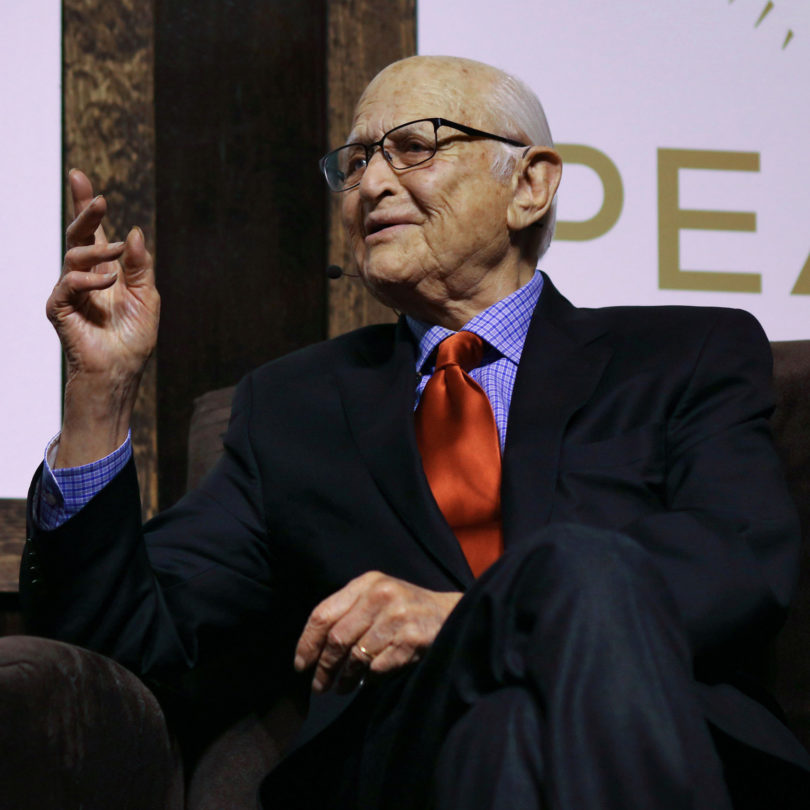The Peabody Awards Board of Jurors has selected Norman Lear to receive an Individual Award and the Independent Television Service an Institutional Award for their contributions to storytelling in television.
These honors are reserved for individuals and institutions whose work and commitment to broadcast media define and transform the field. The Peabody Awards are based at the Grady College of Journalism and Mass Communication at the University of Georgia.
Lear and ITVS will be celebrated May 20 at a gala event in New York City. The event will be taped for a television special to air June 2 at 9 p.m. EST and PST on both PBS and FUSION networks. Rashida Jones, a previous Peabody Award winner for Parks and Recreation, will serve as host. Supporting sponsors of the 76th Annual Peabody Awards Ceremony include the Emerson Collective, an organization focused on education, immigration reform, the environment and other social justice initiatives, and The Coca-Cola Co.
Lear changed the face of television—and the faces. He revolutionized and democratized a traditionally timid, overwhelmingly white-bread medium with a collection of recognizable, risible characters whose racial and gender diversity was as unprecedented as their biases and brash opinions.
From All in the Family and Sanford and Son to Maude, Good Times and The Jeffersons, all the Lear hits shared, to one degree or another, a grounding in the real, polarized America we all knew, not some fantasy nation crawling with dreamy genies, twitchy witches and friendly Martians.
In Lear’s watershed shows of the ’70s, no topic was too touchy to tackle-not racial discrimination, not sexism, not homosexuality, not abortion, not even rape. Better than anyone working in television, Lear has created an influential body of work that politicized the personal, personalized the political and showed us ourselves in all our ridiculousness and nobility.
If any organization can claim a foundational place in the flourishing of documentary film over the past generation, it is the Independent Television Service.
Conceived by independent filmmakers who saw a paucity of diversity in public media, ITVS was formed by Congress in 1988. Since then, ITVS has had a broad transformative impact on the media landscape, particularly in public media. With more than 1,400 films funded and a staggering 32 Peabody Awards, ITVS’ output represents an accomplished range of work as rich as any broadcaster or funder.
Landmark films within the Peabody canon include How to Survive a Plague by David France, Marco Williams and Whitney Dow’s Two Towns of Jasper, Leslee Udwin’s India’s Daughter and The Invisible War by Kirby Dick and Amy Ziering.
These works remain as relevant today as when they were initially broadcast and have made an impact that is impossible to measure. At a time when public media is under political scrutiny, there is no better time to recognize the vital contributions to public discourse and knowledge than that provided by ITVS.








